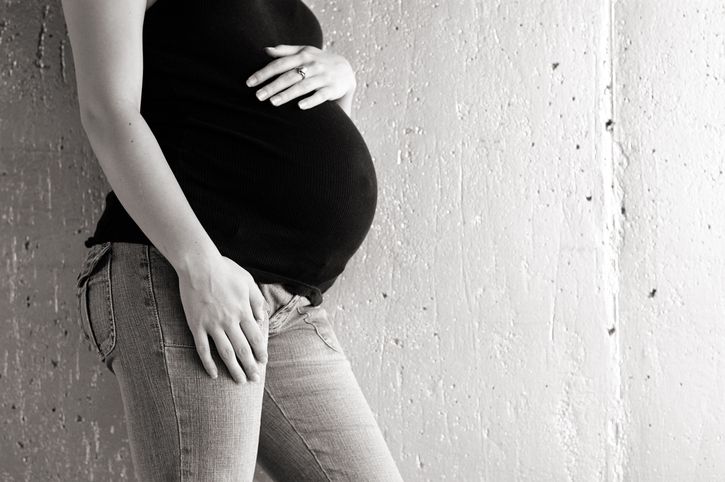
The large numbers of doctors of Islamic faith staffing hospitals around the country may prove an obstacle to Government plans for abortion procedures to be easily available in all 19 of the country’s maternity units.
Large numbers of non-consultant hospital doctors (NCHDs) working in maternity units outside Dublin are Muslims from abroad, according to Dr Trevor Hayes of Kilkenny’s St Luke’s Hospital, who says he had been personally told that they have serious religious qualms about performing abortion. Medical Council data, quoted in The Irish Catholic this week, confirm the high number of Muslim doctors working in the country’s hospitals.
Dr Hayes, who was named Obstetrician of the Year in 2009 and 2013 by Maternity and Infant Magazine, told the Irish Catholic newspaper that a dependence on Muslim consultants is preventing Cavan General Hospital from introducing an abortion service, and that he suspects that conscientious objections from Muslims could block abortions from taking place in 12 of the country’s 19 maternity units.

A bill to remedy the situation of children who had been given false birth certificates that did not record their adopted status was unveiled yesterday. Sponsored by Labour TD, Joan Burton, the Informal Adoption (Regulation) Bill would allow those affected to make an application to the Circuit Court to register their legal adopted status.
It happens as the Government prepares to pass a law allowing ‘parent’ to appear on birth certs where a donor egg or sperm is used to have a child.
Speaking about the adoption bill, Ms Burton said: “The information provided to register the births was false and the children were as a result given false birth certificates, as the children of the ‘adopting’ couple. This is where the illegal registration occurred.”
Children’s Minister Katherine Zappone said she is aware of the bill’s publication and promised to “take a look at it and get back to you on it”.
The bill seeks to define what happened in illegal or ‘informal’ adoptions and will allow people to apply to the Circuit Court to validate their adoption. If satisfied with the evidence presented, the court may make a declaration that the applicant is deemed to have been validly adopted, on a particular date. The Registrar of Births will cancel the false birth certificate, while the Adoption Authority will issue a valid adoption certificate.
Margaret Norton is another illegal adoptee, who was given away by a GP in Co Monaghan in the seventies. She revealed it took her eight years to track down her biological parents via a DNA test because she was given a false birth cert.
Margaret said: “(We thought) we would just check the national birth registry, but there were no records for me. My birth cert was a fraud.” Luckily, she said a DNA test connected her to a cousin.

Official statistics have shown that 12 abortions were carried out in Northern Ireland between April 1, 2017, and March 31, 2018.
The data was published Monday by Northern Ireland’s Department of Health ahead of a meeting of the Women and Equalities Committee as part of its inquiry into the abortion law in Northern Ireland.
More than 900 women travelled to England and Wales during the same period, according to Amnesty International Ireland.
Now that abortion is available in the Republic, women in the North will be able to travel south of the border to end their pregnancies.
In the North, abortion is available only where there is a risk to the life of the mother, or a risk of long-term and serious harm to the mother.

On Tuesday night, RTE’s Prime Time programme examined the “exponential growth” in the number of young people seeking to change gender, and the implications of the proposed new law allowing them to do so without their parents’ consent from age 16 on.
Psychotherapist Stella O’Malley expressed concern about the huge increase in the number of young people who say they are transgender. While she affirmed that transgender children exist, she questioned whether authorities are being too quick to accept a young person’s claim to be transgender, and thereby putting them on a medical path with lifelong consequences.
Producer Sallyanne Godson described how plans in the UK to introduce self-identification legislation for the first time sparked a bitter row between some feminists and transgender activists.
Irish comedy writer Graham Linehan has been vociferous in his support for abortion and same-sex marriage. Yet, he told the programme, “the day after the [abortion] referendum Amnesty put out a statement saying it was a great victory for pregnant people, and that got me going as it was a huge betrayal of Irish women. You don’t identify your way into having a uterus.”
Linehan said he is not happy with men who identify as women playing women’s sports, and is especially concerned that dangerous men who claim trans-women status but who haven’t had surgery can access private women’s spaces such as prisons and refuges.

Around twenty-five percent of Dutch deaths are induced by doctors, according to an analysis by the Guardian newspaper. In figures from 2017, some 1,900 Dutch people ended their lives through assisted suicide. However, the number of people who died under palliative sedation was 32,000. In theory, that should mean succumbing to their illness while cocooned from physical discomfort, but in practice it often means dying of dehydration while unconscious. Altogether, well over a quarter of all deaths in 2017 in the Netherlands were induced.
Writing in National Review, Wesley Smith of the Discovery Institute explained that the palliative sedation (which eases a dying patient’s symptoms while not intentionally causing death) being practiced in the Netherlands is in effect ‘terminal sedation’.
He added that induced deaths have expanded from the terminally ill who ask for it, to the chronically ill who ask for it, to people with disabilities and the elderly who ask for it, to people with dementia, psychiatric patients with mental illness, and the infanticides of babies born with serious or terminal illnesses or disabilities, who don’t have the capacity to ask for it.
There have been joint geriatric killings of couples fearing widowhood. In 2015, Dutch statistics revealed that 431 patients were killed by doctors who never asked for euthanasia–known in the lexicon as “termination without request or consent”–with next to nothing done about it even though such unasked-for lethal acts are technically murder under the law.

A leading campaigner in last year’ referendum to repeal the Eighth amendment has called for further liberalisations of Ireland’s already permissive abortion law.
Professor of Obstetrics, Louise Kenny, made her comments after a woman was denied an abortion in the Coombe hospital because the disability afflicting her unborn child was deemed not likely to lead to death within 28 days of birth.
Professor Kenny alleges that because the predictions necessitated by the law are difficult if not impossible to make, doctors are denying abortions out of fear of getting them wrong and being prosecuted. “Medicine is not a binary science,” Professor Kenny said. “There are hundreds of conditions that can affect a pregnancy that may be fatal and would certainly be extremely life-limiting and there is uncertainty around diagnosis.”
In remarks to the Times, Ireland edition, she said that “the fact that there is a criminal element to the legislation means it has had a chilling effect on obstetricians. How can someone act in good faith if there is a custodial sentence? If you are on the wrong side of a decision you can face very serious consequences, so that has resulted in doctors, and hospitals acting in a very cautious way.”
She continued: “Most of us who worked as obstetricians believed that it was only a matter of time that a case like this would occur given the legislation that was passed — it’s bad legislation. None of us could have imagined it would happen so soon. I think it is worth revisiting the legislation and examining the criminal element and the need to define life-limiting conditions.”

There is a rare condition where people believe a part of their body is not their own and desire it to be amputated. The lack of effective treatment for the disorder is such that some doctors are even considering whether amputation of a healthy limb might indeed be the proper way to tackle it, according to an article in the Health and Family supplement of the Irish Times on Monday.
According to the article, the condition was initially believed to be entirely of psychological origin, but the patients are not delusional, they do not suffer from psychosis and usually present with a normal mental status. Psychological therapy and anti-psychotic drugs do not help the condition. Some doctors believe it to have a physiological or neurological cause while others think it is of psychiatric origin.
A study on more than 100 BIID patients revealed that the disorder starts early in life, usually in childhood, and that the majority of those affected (about 90 per cent) are men.
While it usually presents as a desire to amputate one limb, it sometimes appears as a desire for paralysis, or to become deaf or blind.
As for what can be done to treat the disorder, so far nothing seems to have worked such that, the article says, some doctors are openly talking about the possibility of amputation as a treatment.
However, it continues, ”for many doctors, there is no way they would agree to the amputation of a healthy limb.”

A woman was denied an abortion by doctors at the Coombe last week as the child was suffering from a condition that was not fatal under the terms of the new abortion law, according to the hospital. The new law says a condition is fatal if it is likely the baby will die within 28 days of birth.
In a diagnostic report, doctors wrote that the child was suffering from a foetal anomaly known as an exomphalos, where organs develop outside the abdominal wall. They later wrote to the woman to say her unborn child’s condition could not be considered fatal and was not eligible for abortion under the ‘Condition likely to lead to death of foetus’ section of the 2018 Act.
Nonetheless, the woman maintained that she was told by doctors initially that her child was suffering from a ‘fatal’ anomaly. It was reported on Friday that she was planning on going to England for an abortion.
Despite the significant change in the story, one of the TDs who initially brought up the case in the Dail, Brid Smith, continued to speculate that the law criminalising limited abortions was having a ‘chilling effect’ on hospitals and preventing abortions that would otherwise take place.
Ms Smith had named the woman, and the town where she lived, on the floor of the Dail on Thursday. She was criticised by Kate O’Connell, TD for Fine Gael, who said the intervention was “ill-judged” and “irresponsible”.

There is strong support for reducing the waiting time for divorce in Ireland even beyond what the Government is considering, according to a new Behaviour & Attitudes poll for The Sunday Times.
Some 27% of those polled agreed the waiting time for divorce should be reduced from four years to two. Another 27% felt it should be reduced to one year, while 26% said there should be no waiting time for divorce in the event of a marital breakdown.
Just 11% said the four-year waiting time should be kept in place, while 9% offered no opinion.
The Government are planning on reducing the waiting period to two years, and are mulling over whether to write the new delay into the constitution or whether it should be dealt with entirely by legislation, free of any constitutional restraint.

A decision to delay the abortion of a seriously disabled child has been described in the Dáil as a deprivation of a woman’s constitutional rights to have an abortion “at a time she chooses”.
Solidarity TD Ruth Coppinger raised the case of a 15 weeks pregnant woman whose unborn child, she said, has been diagnosed with a condition likely to result in the child’s early death.
The new law allows abortions up to birth in such circumstances, but Ms Coppinger alleged that the woman was told by doctors at the Coombe hospital to wait four weeks to see if a natural miscarriage would occur. A miscarriage is generally considered medically better for the woman’s health than a surgical intervention.
Calling the situation of the woman a “test case”, Ms Coppinger condemned the delay and said the hospital was “refusing her constitutional right that we all voted for to have an abortion at a time she chooses.”
She also alleged that the board of the Coombe overruled the two consultants who had certified the abortion, and further claimed that they did so as a result of the chilling effect of the continued criminalisation of abortion in some limited circumstances.
The former chair of the Oireachtas abortion committee, Fine Gael Senator, Catherine Noone, called the situation “completely & utterly unacceptable.” She added that the board of the Coombe “should be called into the Health Committee next week to explain their actions.”
The Hospital released a statement later in the day denying that the board had any input into whether an abortion was certified or not.
Brid Smith TD also spoke in the Dail and actually named the woman and the town where she is from. In an interview with the Irish Times later in the day, the woman in question said she did not want her name used “because of the potential backlash, not against just me but my family and my employer”.